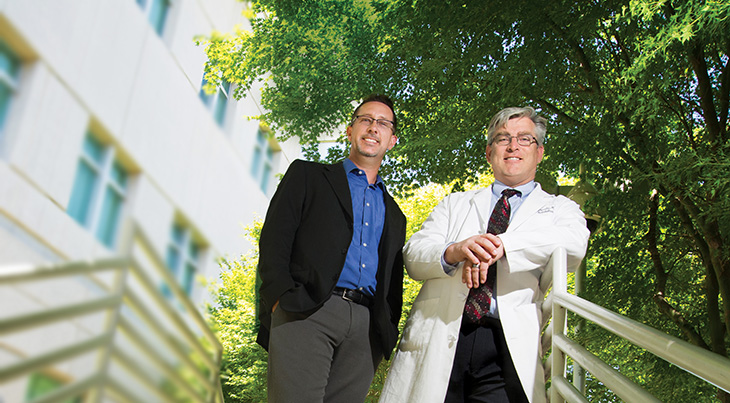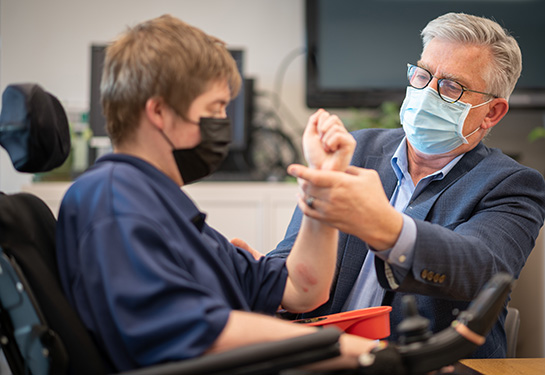International study on Duchenne muscular dystrophy provides foundation for future research
UC Davis Health strives to develop new therapies and treatments for patients
Researchers in the UC Davis Health Department of Physical Medicine and Rehabilitation are launching an international study of the natural history of Duchenne muscular dystrophy (DMD). They will collaborate with the Cooperative International Neuromuscular Research Group (CINRG) and Therapeutic Research in Neuromuscular Disorder Solutions (TRiNDS), an association of medical and scientific researchers who work to improve the lives of people with neuromuscular diseases.
Duchenne muscular dystrophy (DMD) is a progressive disorder that mostly affects boys. It is present from birth and causes weakness in muscles and loss of muscle function. People with DMD can lose their ability to walk in their teens. DMD also affects heart, lung and bone health.
The study, known as the Duchenne Natural History Study, will collect information on the course of the disease in people with DMD who are receiving standard care at clinics around the world. The goal is to study the progression of the disease as patients age and in different settings to increase understanding. This data will help to provide a foundation for future research into treatments.
Sarepta Therapeutics is funding the study.
“UC Davis has an established track record of fostering partnerships between academic and industry investigators in non-competitive areas of science,” said Erik K. Henricson, co-principal investigator on the study and associate professor in the Department of Physical Medicine and Rehabilitation (PM&R). “These collaborative scientific programs can benefit the global research community through novel discoveries that can lead to life-changing medical innovations.”

Building on current research into Duchenne muscular dystrophy
The new project builds on a previous longitudinal study that was led by UC Davis scientists and CINRG collaborators around the world. That study ran from 2003 to 2016 and included 20 institutions from nine countries. It included 440 families. Researchers looked at patterns of change in physical abilities, severity of medical problems and the way patients used health care services. The research team also discovered biomarkers associated with disease progression and identified how common genetic variations can alter patterns and rates of DMD progression.
“Data from our initial longitudinal study has been used in the development of novel therapies that today are being used by individuals with DMD worldwide,” Henricson explained. “Along with our CINRG colleagues, UC Davis is excited to begin enrollment of a new global cohort of patients with DMD.”
Data from our initial longitudinal study has been used in the development of novel therapies that today are being used by individuals with DMD worldwide. Along with our CINRG colleagues, UC Davis is excited to begin enrollment of a new global cohort of patients with DMD.”—Erik K. Henricson, associate professor in the Department of Physical Medicine and Rehabilitation
Joining Henricson as co-principal investigator of the study is Craig MacDonald, professor and chair of PM&R. McDonald is also the lead investigator of a clinical trial to test systemic cell therapy in DMD, which has shown great promise in halting the deterioration of upper limb and heart function in patients.
“Through the extraordinary efforts of our long-time colleagues from CINRG, the UC Davis Duchenne Natural History Study has grown over the past 20 years to become a model of collaborative efforts, and is a worldwide data resource for academia, patient advocacy groups, industry, and government agencies alike,” Henricson said. “We look forward to continuing this longitudinal study as long as necessary to establish effective long-term treatments for people with DMD.”


